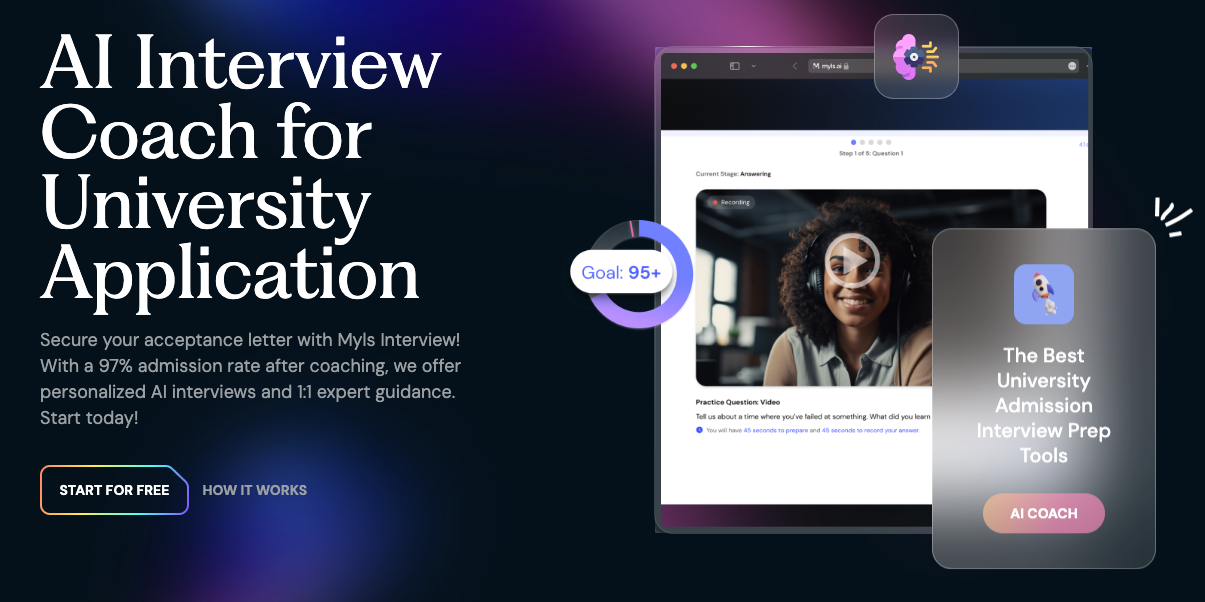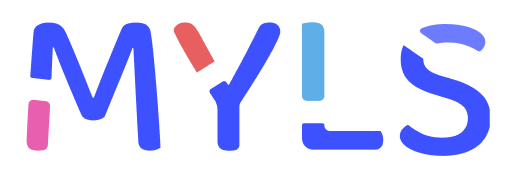How to Choose the Right University Program: Aligning Strengths, Goals, and Academic Fit
Choosing a university program can be daunting—but it doesn't have to be guesswork. This guide helps you evaluate your interests, strengths, and future plans to make a confident choice. Learn how Myls Interview mentors help students plan with clarity and long-term vision.

Choosing a university program may be one of the first big academic decisions you make — and it often feels like you’re expected to get it right the first time.
Should you follow your strongest subject? Pick something practical? Chase a passion? What if your parents or teachers are steering you in a different direction? What if you’re interested in everything — or nothing in particular?
The truth is, many students feel lost at this stage. But with thoughtful planning and the right support, choosing a program can become an empowering experience — not a stressful one.
This guide will walk you through how to approach program selection strategically and why having a mentor by your side can help you align your choice with who you are and where you’re going.
Why Choosing the Right Program Early Matters
While it’s possible to switch programs in university, doing so can lead to:
- Lost time (extra semesters to catch up on prerequisites)
- Higher tuition costs
- Delayed graduation
- Missed opportunities for internships, research, or cohort-based learning
More importantly, the wrong program can leave you uninspired, unmotivated, or unprepared — which affects your performance, your confidence, and your academic wellbeing.
Choosing the right program from the beginning sets you up to:
- Engage deeply in your courses
- Build a stronger, more coherent resume
- Access program-specific opportunities (e.g. research, case competitions, networking events)
- Maintain momentum toward graduate school or career goals
This doesn’t mean you need to know your entire life plan — but it does mean choosing a program that fits your strengths and opens doors instead of closing them.
What to Consider When Choosing a University Program
1. Academic Strengths and Performance
Start with your academic profile:
- What subjects come naturally to you?
- Where have you consistently performed well?
- What skills (quantitative, analytical, creative, verbal) do you tend to apply effortlessly?
University-level study builds on the foundation you’ve built in high school. Aligning with your strengths increases your chances of success and lowers the risk of burnout.
2. Personal Interests and Curiosity
Your strongest subject may not be your favorite — and that’s okay. Consider:
- What topics do you research or explore in your free time?
- What types of questions or problems excite you?
- Do you prefer working with people, systems, data, ideas, or technologies?
An undergraduate program that engages your curiosity will be more sustainable over four years than one chosen purely for perceived practicality.
3. Career Alignment and Flexibility
Some programs lead to highly specific outcomes (e.g., nursing, engineering). Others are more flexible (e.g., economics, psychology, sociology).
Ask:
- Do you want a professional pathway with defined outcomes?
- Or would you prefer a general degree that gives you options to explore?
Also consider career-relevant additions like:
- Co-op or internship opportunities
- Specializations, minors, and elective options
- Access to alumni networks and industry connections
4. Admission Requirements and Competitiveness
Make sure you:
- Meet the academic prerequisites for the program
- Understand the average entrance GPA or supplementary requirements (e.g. essays, interviews, portfolios)
There’s no shame in applying to a program that matches your profile rather than one that meets someone else’s expectations.
5. Learning Environment and Course Structure
Think beyond content. Consider the style of learning:
- Large lecture-based or small seminar-style classes?
- Theory-heavy or hands-on?
- Rigid structure or room for course exploration?
Some students thrive in competitive environments. Others perform better in collaborative or interdisciplinary settings. Know your preferences.
Common Mistakes Students Make When Choosing a Program
1. Choosing Based on Prestige
Just because a program is highly ranked doesn’t mean it’s a good fit. A prestigious program in a subject you don’t enjoy can quickly become overwhelming.
Fix: Focus on fit, not just reputation.
2. Following Someone Else’s Path
Many students feel pressure to pursue the same major as a sibling, parent, or friend. But what worked for them may not suit your personality, goals, or interests.
Fix: Take ownership of your decision. You’re the one who will live it.
3. Confusing Interest with Career
Loving history doesn’t mean you have to become a historian. Being good at science doesn’t mean you must pursue medicine.
Fix: Look at what you enjoy and where those interests can lead, not just what they “must become.”
4. Ignoring Interdisciplinary Options
Some of the most exciting programs today are blended: business + tech, health + society, science + communication. Don’t limit yourself to traditional silos.
Fix: Explore joint majors, minors, and interdisciplinary degrees.
Why You Need a Mentor for Program Planning
The program you choose affects how you learn, what you’re exposed to, and what doors open for you in the next decade. That’s a lot to put on a 17-year-old without support.
A mentor can help you:
- Clarify your academic identity — What are your actual strengths, and how do they translate into academic paths?
- Explore program differences — What's the difference between life sciences, health sciences, and biomedical sciences? A mentor can explain beyond the brochure.
- Consider the long-term picture — How does a BA in economics compare to a BBA in terms of career outcomes? What if you’re deciding between software engineering and computer science?
- Create a realistic university application plan — A mentor can help you build a smart mix of target, reach, and safety programs — and avoid common missteps in your choices.
- Feel confident in your decision — Many students know what they don’t want, but feel unsure about what they do want. A mentor helps bring clarity, structure, and forward motion.
Without mentorship, students often pick programs based on assumptions, peer pressure, or fear of missing out. With mentorship, the process becomes empowering.
How Myls Interview Supports Strategic Program Selection

At Myls Interview, we support students in making strategic, informed decisions about their academic path. Choosing the right university program isn’t just about submitting university applications—it’s about understanding yourself, your goals, and where you’ll thrive. That’s why our approach is built around long-term vision, not short-term checklists.
With Myls, you’ll benefit from:
1-on-1 Mentorship from Experienced Advisors
Our mentors know the subtle differences between programs—even those with similar names. Whether you’re deciding between commerce and business admin, or between engineering and applied science, we help you decode program structures, expectations, and student experiences.
Academic Strength & Interest Assessments
We provide personalized assessments to help you reflect on your academic performance, learning style, and subject strengths—so you can choose programs that match not just your marks, but your potential.
Program Comparison Tools and Strategic Planning
Use our AI-driven tools to evaluate key differences in program structure, flexibility, co-op or internship pathways, and graduate outcomes. We help you weigh the trade-offs and make informed choices rooted in your priorities.
Insights Into Emerging and Interdisciplinary Programs
Not all great programs are widely known. We introduce you to innovative or interdisciplinary options—such as tech-business hybrids, research-rich environments, or experiential learning programs—that align with the future of work and education.
Goal-Oriented Planning Support
We help you align your program choices with your long-term goals—whether that’s graduate school, research opportunities, entrepreneurship, or a competitive co-op track. Your decisions today should support where you want to be tomorrow.
At Myls Interview, we believe choosing a program is more than checking a box—it’s about building a meaningful, personalized roadmap. One that reflects who you are, what you’re curious about, and where you want to grow.
Start your program planning with Myls Interview and make your next academic move with purpose, strategy, and clarity.
Final Thoughts: Your Program Should Grow with You
You’re not expected to have your entire life figured out at 17 — but you are capable of making smart, reflective choices about your direction.
Pick a program that challenges you, excites you, and gives you room to grow — not one that boxes you in. And don’t be afraid to ask for guidance. You don’t need all the answers. You just need the right questions, the right tools — and the right support.
If you’re unsure what to apply to, Myls Interview mentors can help you explore options, clarify your strengths, and build a program plan that’s designed for success.




